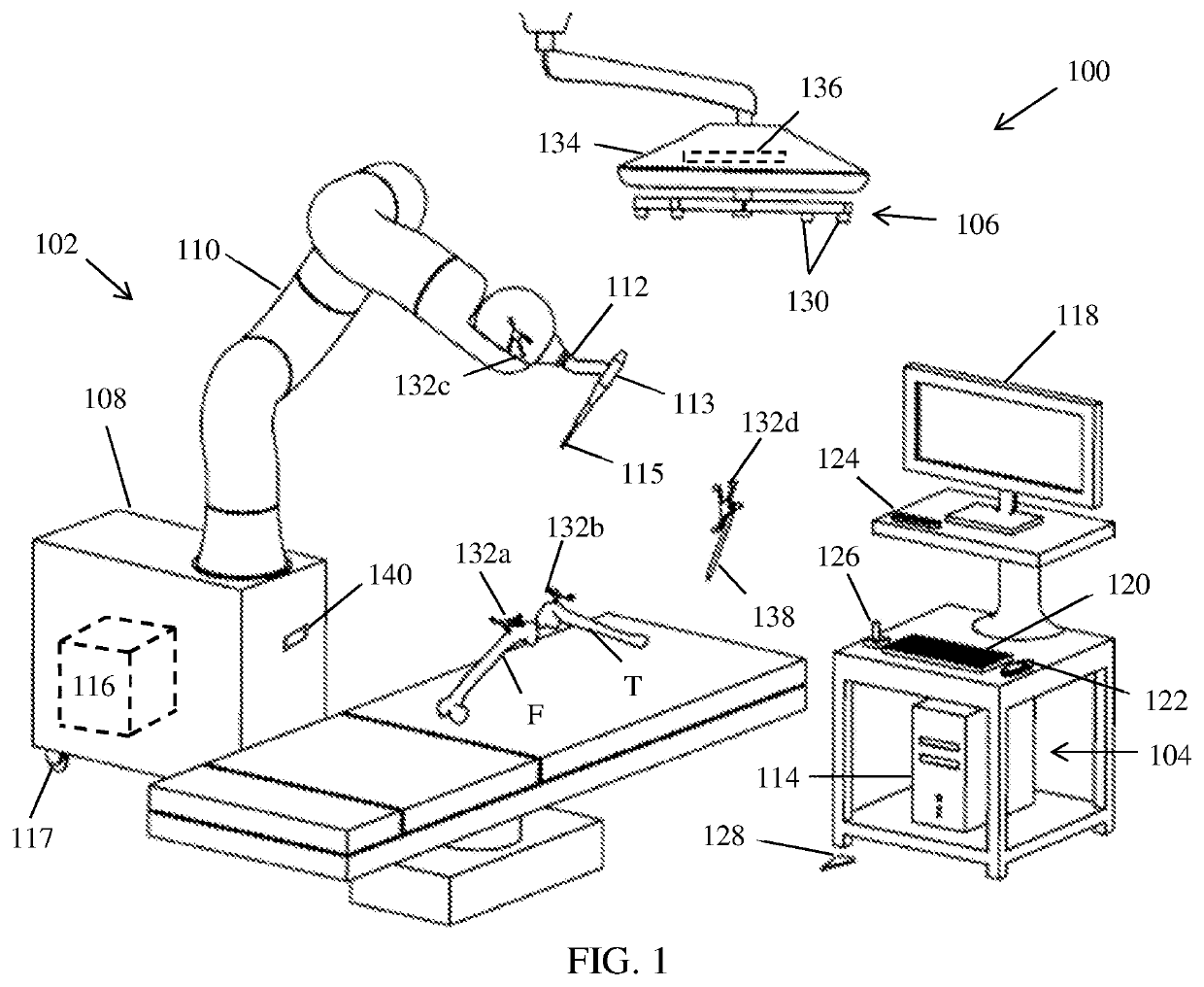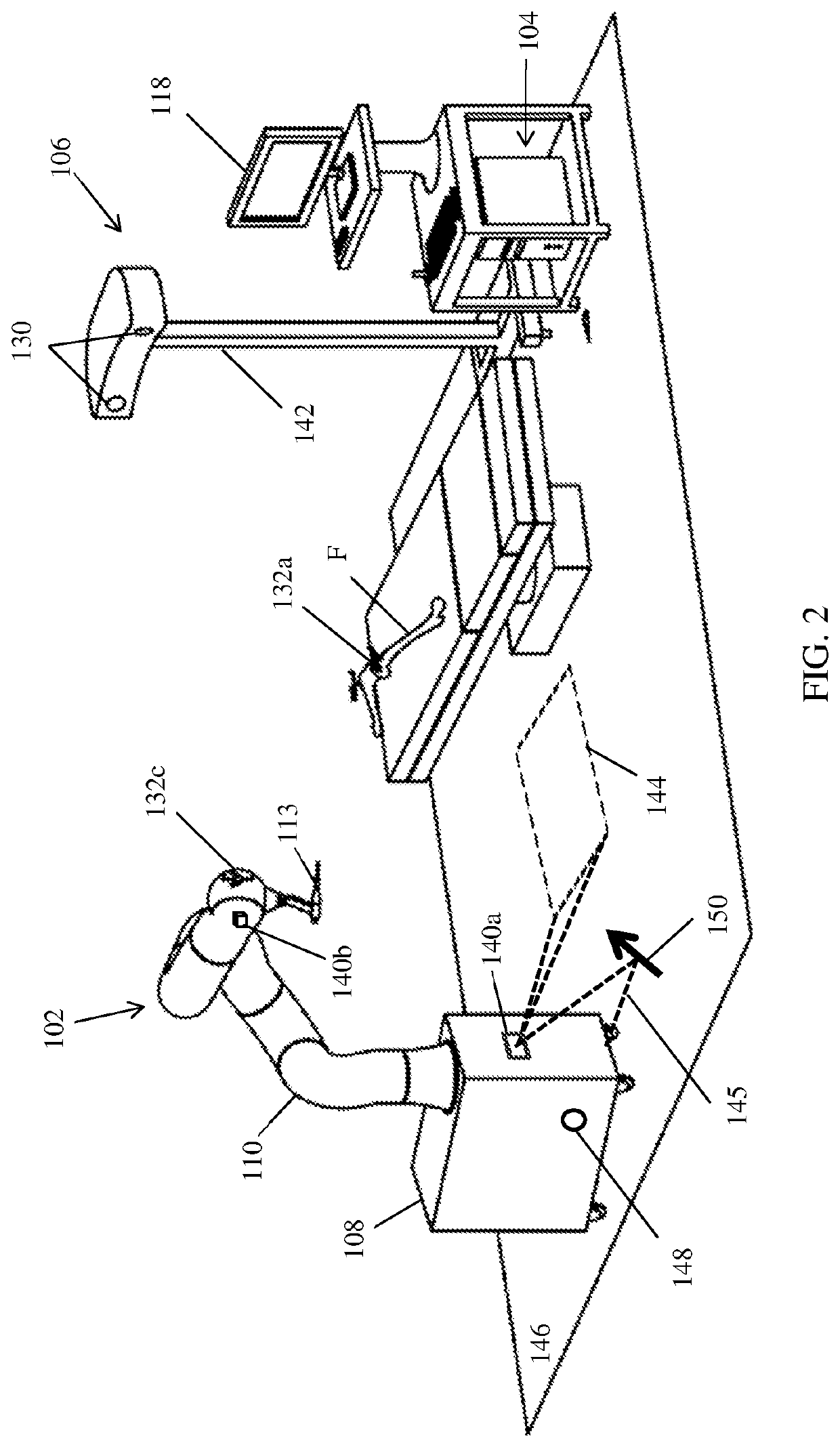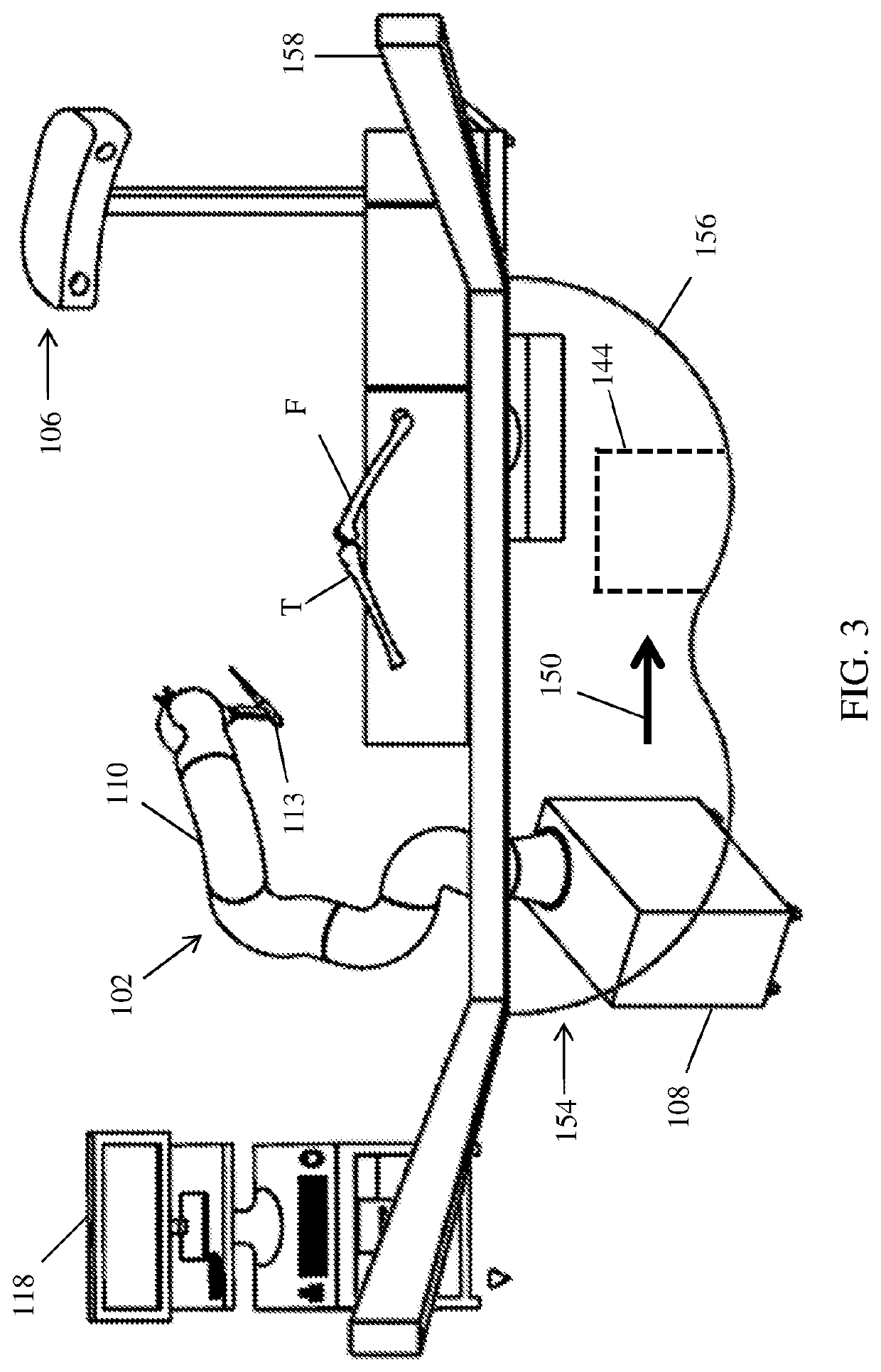Method and system for guiding user positioning of a robot
a robot and positioning technology, applied in the field of robot and computer assisted surgery, can solve the problems of limited a priori information, no guarantee that the new position of the base is suitable, and designated points or boundaries can also change within the workspa
- Summary
- Abstract
- Description
- Claims
- Application Information
AI Technical Summary
Benefits of technology
Problems solved by technology
Method used
Image
Examples
Embodiment Construction
[0020]The present invention has utility as a system and process for dynamically positioning or repositioning a robot in a surgical context based on workspace and task requirements, manipulator requirements, or user preferences. Embodiments of the inventive system and method accurately determine and indicate an optimal position for a robot with respect to a patient's anatomy before or during a surgical procedure.
[0021]The following description of the preferred embodiments of the invention is not intended to limit the invention to these preferred embodiments, but rather to enable any person skilled in the art to make and use this invention. The invention described herein illustratively uses total knee arthroplasty (TKA) as an example. Although total knee arthroplasty is one procedure that can benefit from the disclosed embodiments other surgical procedures can illustratively include surgery to the knee joint, hip joint, spine, shoulder joint, elbow joint, ankle joint, jaw, a tumor sit...
PUM
 Login to View More
Login to View More Abstract
Description
Claims
Application Information
 Login to View More
Login to View More - R&D
- Intellectual Property
- Life Sciences
- Materials
- Tech Scout
- Unparalleled Data Quality
- Higher Quality Content
- 60% Fewer Hallucinations
Browse by: Latest US Patents, China's latest patents, Technical Efficacy Thesaurus, Application Domain, Technology Topic, Popular Technical Reports.
© 2025 PatSnap. All rights reserved.Legal|Privacy policy|Modern Slavery Act Transparency Statement|Sitemap|About US| Contact US: help@patsnap.com



